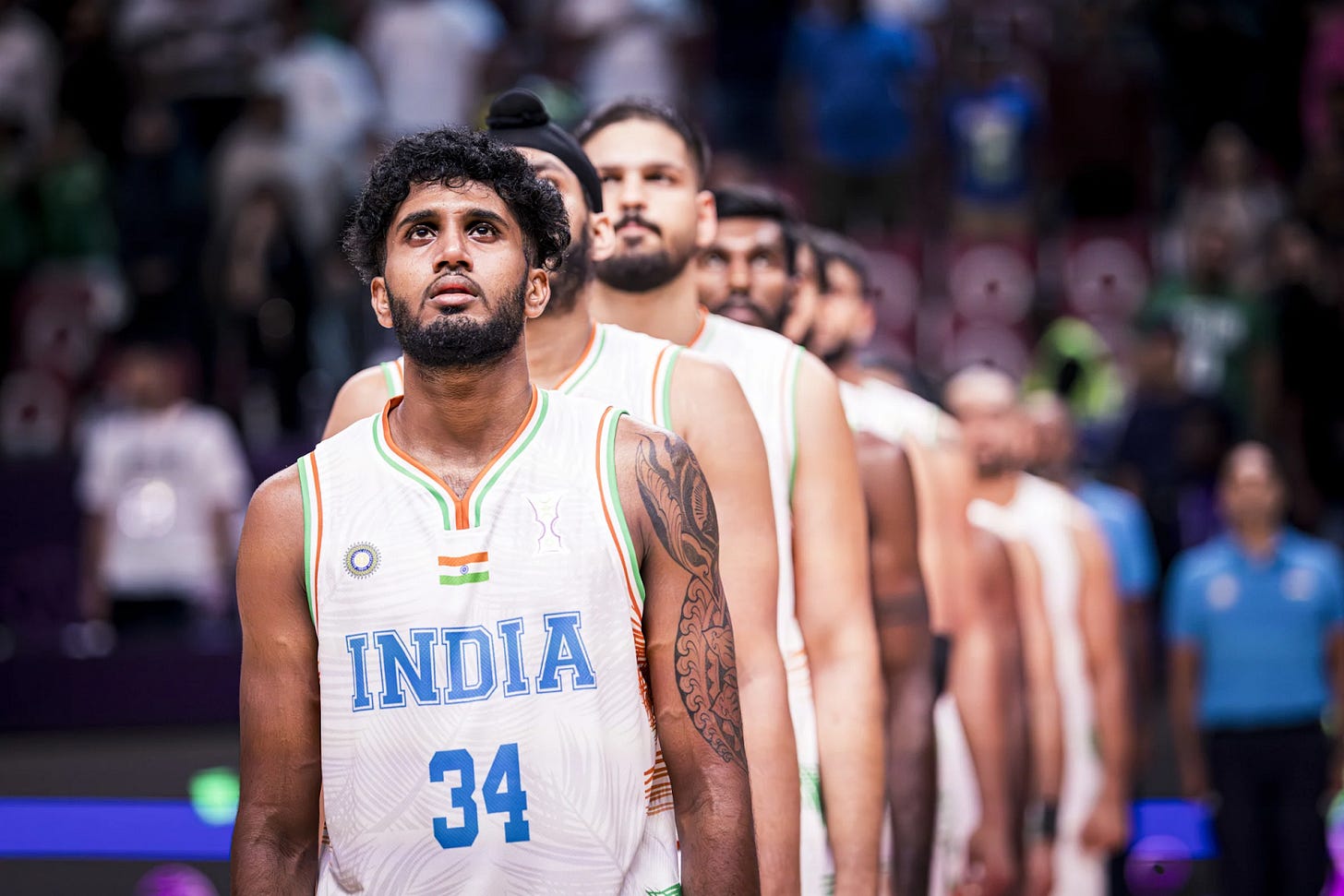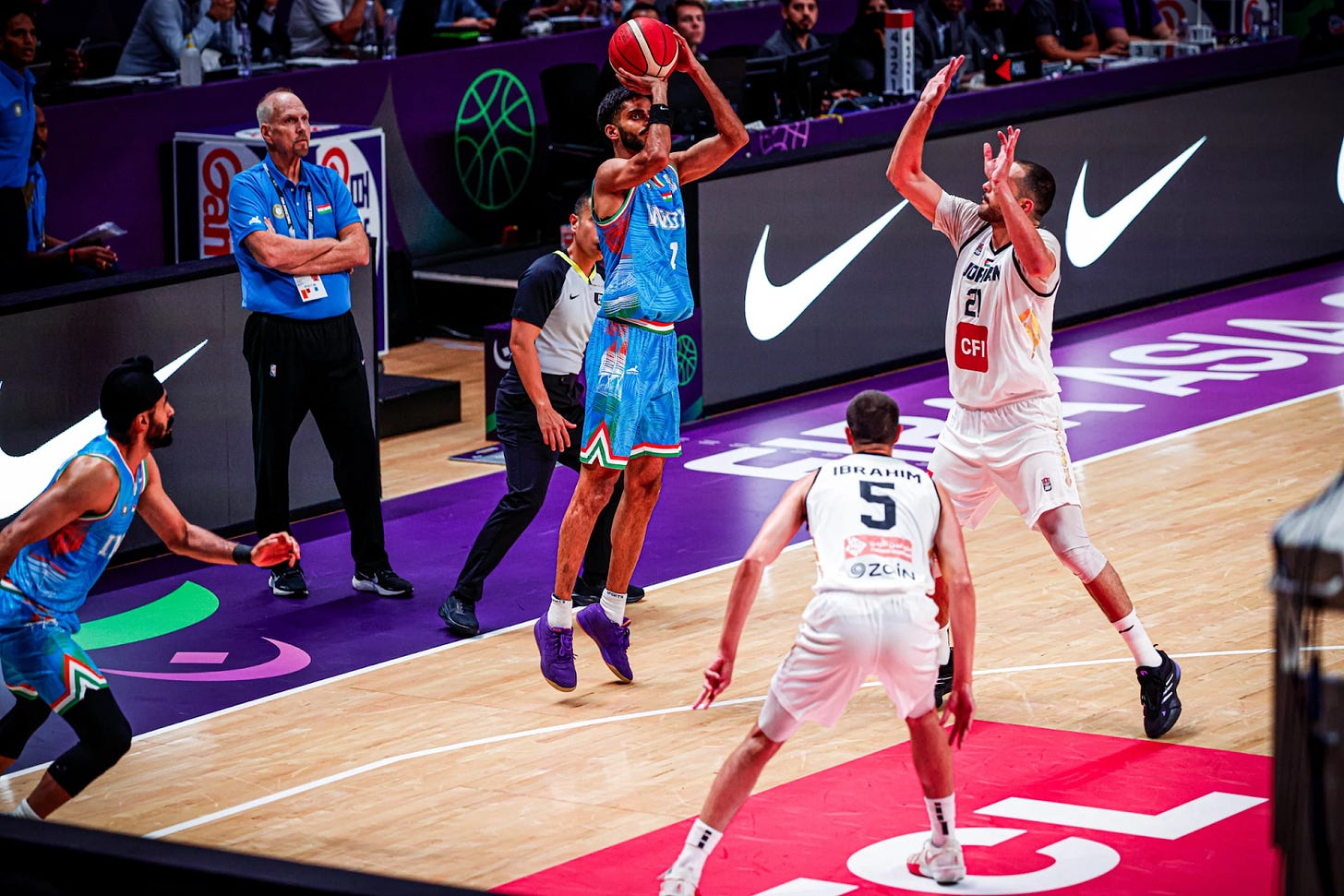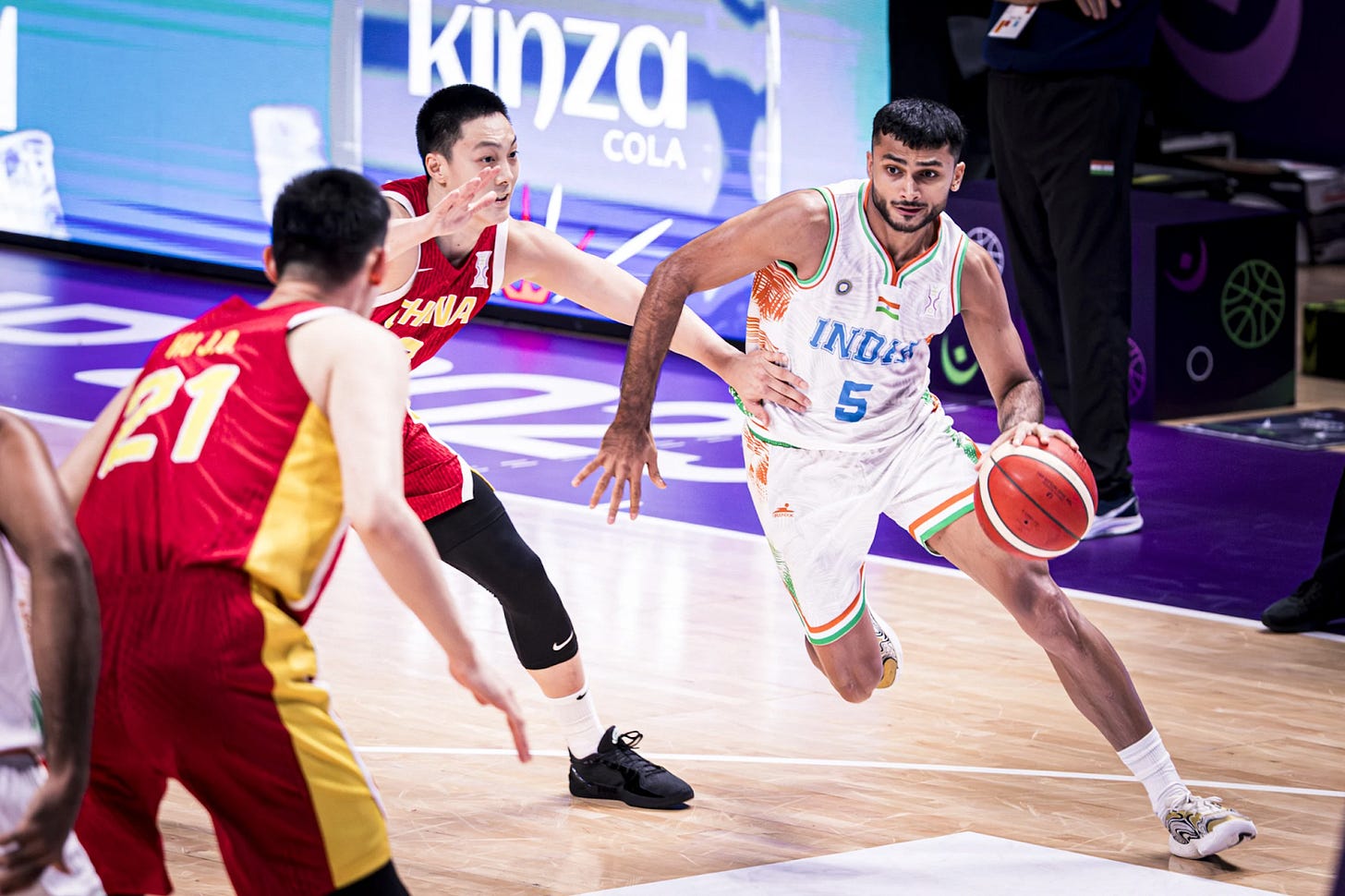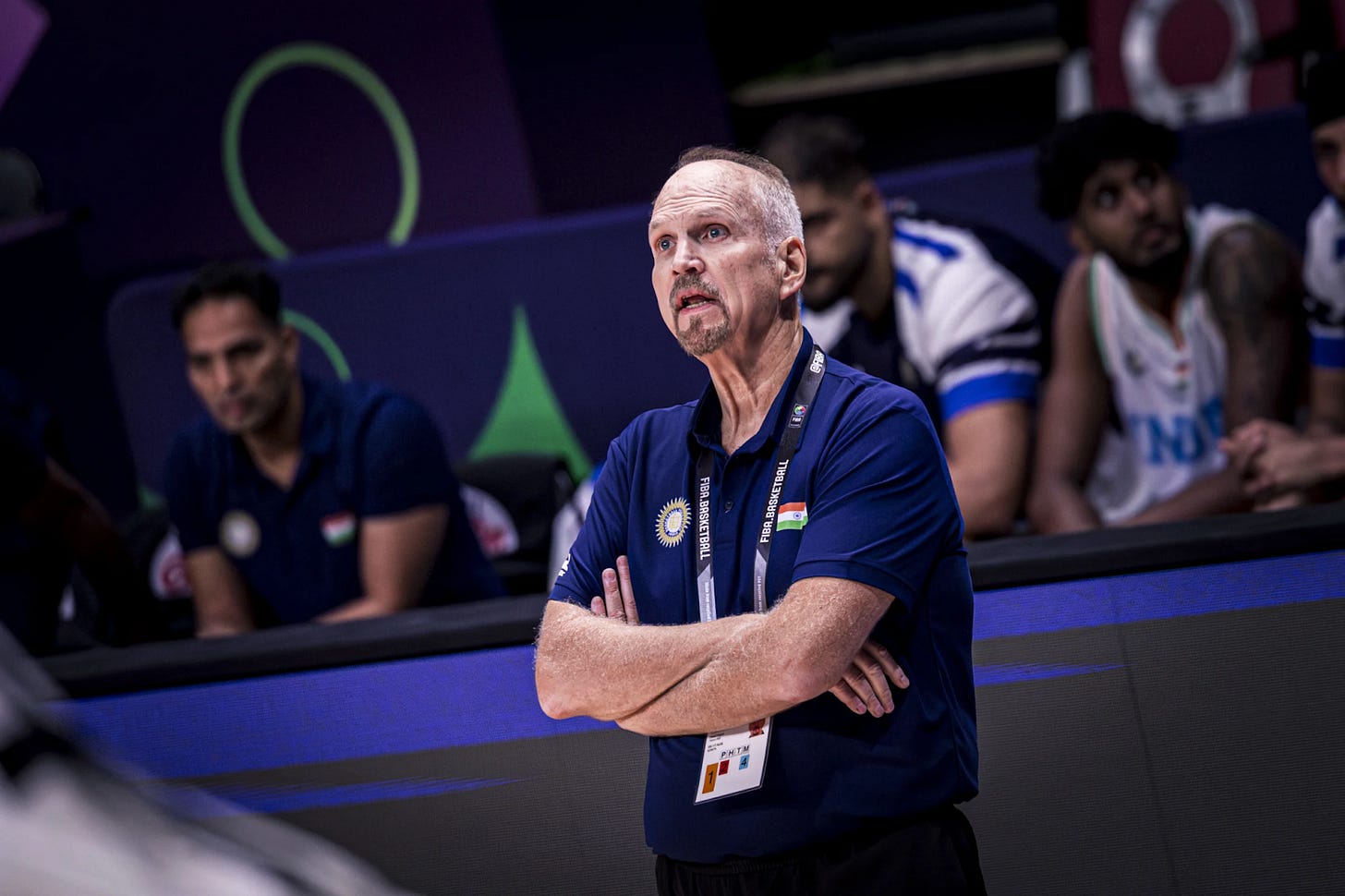India Basketball Team Selections: ‘No Politics Involved,’ says Men’s Head Coach Scott Flemming
The National Men’s side finished winless in the ongoing FIBA Asia Cup, failing to progress to the knockout rounds.
On August 9, India’s journey through the group stage of the FIBA Men’s Asia Cup ended in disappointment, going 0–3 and bowing out of the tournament.
From Overtime Thriller to Fading Finish

India’s campaign had begun on a promising note against the much higher-ranked Jordan, where the Cagers pushed the match to overtime before losing 84–91.
In that opening game, all 12 players saw action during the first one and a half quarters, signaling a steady rotation strategy. However, as the tournament progressed, with the team losing to China (100-69) and Saudi Arabia (84-59), the coach Flemming tightened the rotation. He narrowed playing time among a core set of seven to eight men, particularly in the final game against Saudi Arabia.
By the closing stretch, the spotlight was only shone on a handful of standouts. Pranav Prince and Arvind Muthu Krishnan emerged as steady workhorses, consistently logging substantial minutes and driving India’s offense. In the final game against KSA, Palpreet Singh Brar, made his mark in a big way, delivering 20 points.
That evolving on-court strategy also reflected Flemming’s approach to selecting his team, one that, he insists, has nothing to do with politics or outside pressure.
Scott Flemming Denies Any Political Pressure
Speaking at a pre-tournament press conference organized by FanCode, Flemming made it clear that the 12-man squad that represented the country at Asia’s premier basketball event was chosen entirely on merit and performance.
“Well, the one thing you can be sure of is that I never make any moves from a political standpoint, or who is from what state or whatever,” Flemming told reporters. “I am just trying to put the 12 on the floor that will give us the best chance to win.”
The American coach, who previously led the Indian team from 2012 to 2015 returned to the post last year. Flemming emphasized that the current roster reflects months of practice, training camp performance, and evaluating talent not based on external pressure.
“Some of these players I had already had in the NBA Academy, so I knew their game,” he said. “They were just getting better then, you know.”
Roster Always Evolving

Flemming’s final selections for the Asia Cup included a mix of seasoned campaigners and emerging talent. Veterans like Palpreet Singh Brar and Muin Bek Hafeez brought experience, leadership, and stability to the court.
While youngsters such as Kanwar Gurbaz Singh Sandhu and Sahaij Sekhon earned their place through dedication and adaptability. Another notable feature of Flemming’s tenure so far has been the constant evolution of the roster.
“We got some good veteran players, like Palpreet and Muin, who will hold over us and I think really lead us from a seniority standpoint,” said Flemming. “We got some other players I really like, like Gurbaz and Sekhon. Some of those guys have really bought into our system. So you can see too that the roster has changed some each time we go. We don't always stay with the same 12.”
Want to Improve Your Selection Chances?

Ahead of the tournament, Flemming had set his sights on making the national side a formidable shooting team, a style he believed played to India’s natural strengths. “I looked at what can we do better than anyone else? I looked at our squad and realized we have some really good shooters,” he said.
Not just the national team, but across the basketball community, players are aiming to fine-tune their shooting form. Now, while not every player can get tips directly from Flemming, digital coaching platforms, such as Pocket Coach, are filling in.
Many young basketball players today are turning to platforms and apps that offer personalized yet professional training programs, video feedback, and tactical insights. One such app is Pocket Coach, a digital coaching service.
Shutting Down the Favouritism Narrative

In India, it is often hinted that political or other influential pressures can bend the selection process of sporting teams.
From cricket to athletics, and even basketball, whispers about favoritism, nepotism or regional bias are never far from the conversation. But Flemming’s remarks appeared aimed at putting those suspicions to rest.
With India’s journey in the FIBA Men’s Asia Cup now over, Flemming and his hand-picked 12 will have the chance to regroup, rethink, and work on their game for future tournaments. And performance, not politics, will hopefully continue to define Indian basketball’s story.
Also Read:
***
If you've come this far...
Appeal to readers - ₹₹ Support Ekalavyas: Ekalavyas is India's first and only basketball media company. We are not foreign-funded, nor investor backed. Your support and encouragement have got us this far. We now need your financial assistance to ensure we can keep providing you timely, accurate and important information. Please contribute via https://razorpay.me/@ekalavyas 🙏🏾. We are accepting contributions as low as Rs. 1/- (including a small processing fee charged by the payment gateway provider). Thank you for playing a part in keeping media independent and objective!




